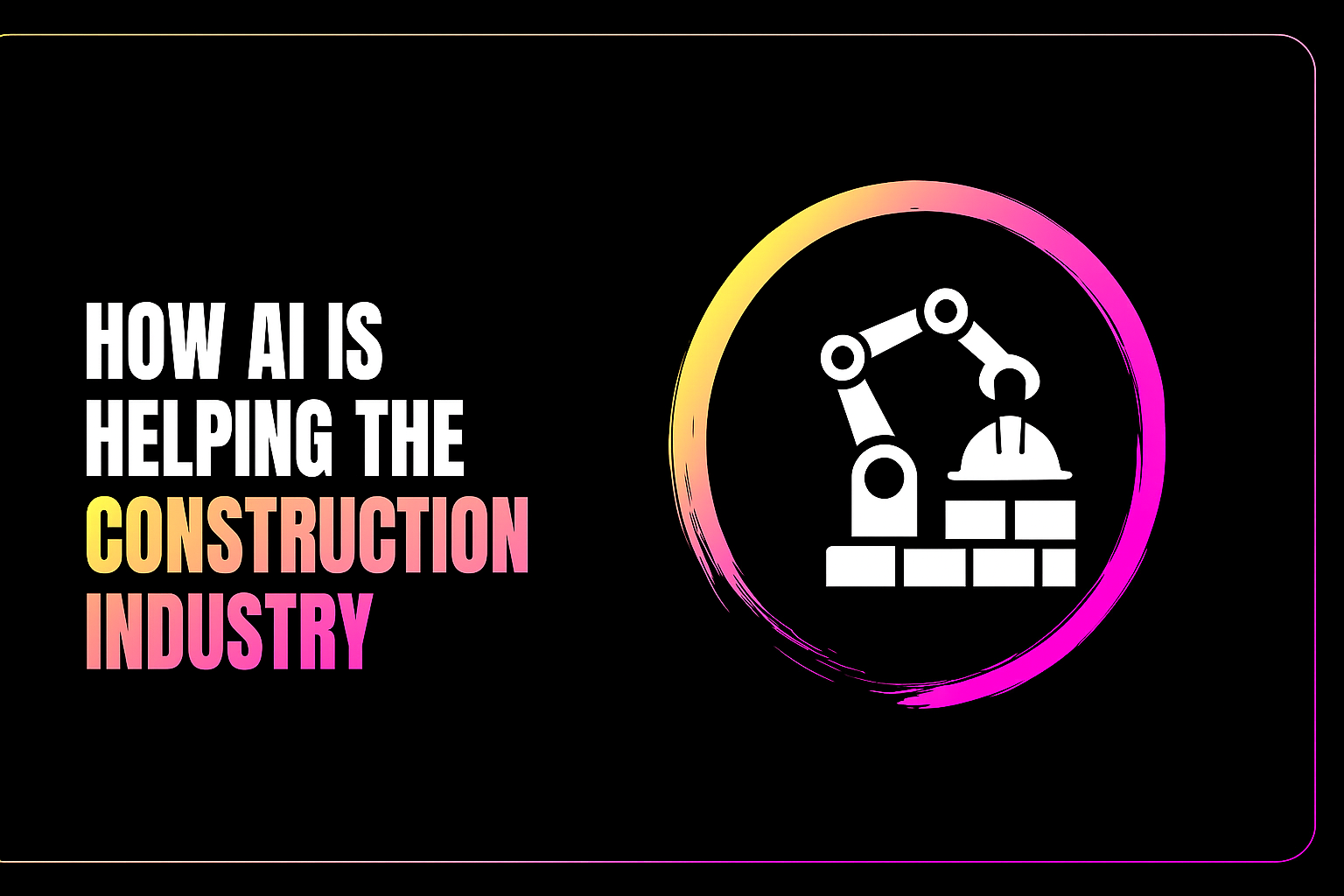
Discover how AI is transforming the construction industry, from reducing project delays and boosting productivity to enhancing safety and optimizing costs. Explore the latest AI applications in pre-construction, planning, and jobsite operations, and learn how to get started with AI in your own projects.
In an industry where every detail matters, AI is becoming a powerful new tool, and it's not as futuristic as you might think. From the moment a project is conceived to the final inspection, AI is helping professionals at all levels work smarter, faster, and safer. It's a game-changer that's reshaping traditional processes and tackling some of the industry's biggest challenges. So, let's look at what's happening and how AI is transforming construction as we know it.
Artificial Intelligence (AI) is a technology that lets computers mimic human intelligence to perform tasks like learning, reasoning, and making decisions. In construction, this looks a little different than a robot in a movie. It's often a blend of tools like machine learning, computer vision, and natural language processing that analyze massive amounts of data in real time.
The construction industry has long been known for its complexities, tight margins, and a heavy reliance on manual labor, which has led to flatlining productivity. But now, as digital tools and connected devices become more common, there's a flood of data waiting to be used. AI is the engine that can process all this information, turning it into actionable insights that help you make better decisions, reduce waste, and avoid costly mistakes.
In fact, the market for AI in construction is growing at an incredible pace. One source projects the AI market in construction will reach $22.68 billion by 2032, with a compound annual growth rate (CAGR) of 24.6%. Another report forecasts the market will reach $11.85 billion by 2029, with a CAGR of 24.31%. This shows just how much the industry is embracing this technology.
Before you even break ground, AI is already hard at work helping teams with planning and design. Traditional methods can be slow and prone to errors, but AI changes all of that.
Did you know…
In one project, AI-powered construction management software reduced the turnaround time for engineering workflows by 57%.
AI's benefits extend far past the planning phase. On the jobsite, it's all about improving productivity, safety, and quality control.
If you're thinking about using AI in your own operations, it's important to start small. You don't have to overhaul your entire workflow at once. Begin by identifying a specific pain point—maybe it's a slow administrative process, or you want to improve safety monitoring—and look for an AI tool that addresses that particular issue. This phased approach helps you get a feel for the technology, build internal trust, and see a tangible return on your investment before you expand.
The future of construction is here, and it's powered by AI. By embracing these new tools, you're not just modernizing your processes; you're building a smarter, safer, and more efficient future for your company and the entire industry.
If you’re thinking of dipping your construction toe in the AI waters, SalesApe could be the perfect solution. Our user-friendly AI lead qualifier can take care of all your inbound leads, communicate with your potential new customers and ensure you’re only spending your time on the highest quality prospects.